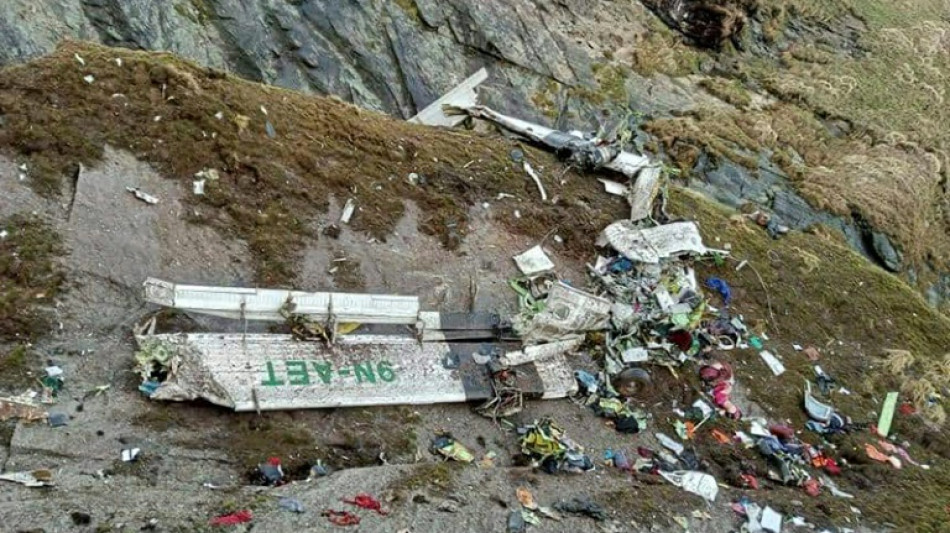

Nepal tightens flight rules after crash that killed 22
Flights in Nepal will be cleared to fly only if there is favourable weather forecast throughout their route, according to new regulations announced in the wake of a recent crash that killed 22 people, officials said Thursday.
A full investigation into the crash of the Twin Otter aircraft in western Nepal on Sunday is underway, but a preliminary inquiry suggested that bad weather caused the accident.
Air traffic control lost contact with the twin-prop plane shortly after it took off from Pokhara and headed for Jomsom, a popular Himalayan trekking destination.
The wreckage was found a day later, with all 16 Nepalis, four Indians and two Germans who were on board killed.
Aviation companies have raised concerns about how to implement the new regulations, citing the country's limited weather forecasting infrastructure.
Authorities say flight permits will now only be issued after the aircraft's operator submits a flight plan with weather information for the destination and the entire route of the flight, according to a Civil Aviation Authority of Nepal notice issued on Tuesday.
Providing en-route weather information was previously not mandatory.
Air operators could also be prohibited from conducting flights if the Department of Hydrology and Meteorology forecasts adverse weather conditions for a certain time in any area.
Aircraft operators say Nepal lacks infrastructure for accurate weather forecasts, especially in remote areas with challenging mountainous terrain where deadly crashes have taken place in the past.
"Though the decision is essential and plays a vital role in the flight safety, we are confused on how to implement it as there is no clear way to get the en route weather information for domestic flights," said Yog Raj Kandel Sharma, spokesperson of the Airlines Operators Association of Nepal.
The aviation authority has also formed a committee to look into the possibility of making it mandatory for there to be two pilots on board single-engine helicopters.
Sunday's crash was the latest air accident in the Himalayan country, which has some of the world's trickiest runways to land on and where pilots must deal with capricious mountain weather.
Nepal's air industry has boomed in recent years, carrying goods and people between hard-to-reach areas.
In addition to difficult flying conditions, however, it has been plagued by poor safety due to insufficient training and maintenance.
The European Union has banned all Nepali carriers from its airspace over safety concerns.
T.Abato--IM




